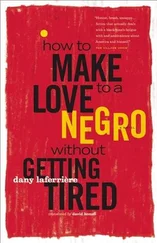‘And in the meantime?’ asks the director, matter-of-factly.
‘In the meantime there’s nothing we can do,’ says the colonel. ‘We’ll ask the people who deal with Spain. If they don’t know anything, we’ll have to wait for her to get better to send her back home.’
By the time he finishes the phrase, Mulud is in the doorway. The director goes after him. Both say goodbye with a short formula, and the nurse remains alone with the patient. She sits on the edge of the bed. She has got used to the foreigner’s presence, but she’s very curious about her story. She touches her forehead and looks one more time at her tangled hair, her white skin and soft hands. Suddenly the woman gives a start and opens her eyes. She doesn’t know where she is. Her eyes are full of fear.
‘Aza,’ she says, delirious. ‘They shot Aza. You have to tell everybody.’
‘Who’s Aza?’ asks Layla, tying to appease her.
‘Aza? She escaped with me and they caught us. That murderer killed her. It was my fault. I should have escaped on my own.’
‘Who killed her?’ insists Layla.
The foreign woman closes her eyes and goes quiet. From her breathing, it is obvious she’s suffering. Layla squeezes her hand, determined to stay by her side until she calms down.
7. Jaima : A large tent used in the Sahara.
8. Wilaya : An Algerian administrative area akin to a province.
9. Wali: Administrative head of a wilaya .
FOR SANTIAGO SAN ROMÁN, THE OASIS WAS THE CENTRE of the universe. Leaning on the bar, or sitting at one of the oilcloth-covered tables, he felt that the world revolved around him. Never before had he felt so comfortable. A glass of cognac in his hand, and the company of Guillermo, was all he needed to forget the thorn that had been lodged in his conscience since he had left Spain.
The officers gathered at the Casino Militar and the Parador Nacional in El Aaiún. The Oasis was reserved for the troops. On Saturday evenings no other place in the city, or for that matter the province, was as crowded. Its owner, a world-weary Andalusian, was called Pepe El Boli. The place was the only one where the authorities turned a blind eye to prostitution. At the Oasis one could find whores, bingo, poker, brawls, hash and the cheapest cognac in the Western Sahara. On Saturday nights it looked like a battlefield. The prostitutes, dressed as waitresses, could barely cope, and the shouts of the gamblers vied with the TV turned on at full blast. No other place in the city had such a faithful clientele as the Oasis. Sooner or later, everyone who had a permit for an evening’s, or a week’s, leave, dropped by.
When he spent time at the Oasis, Santiago San Román forgot about his obsessions for a while. And ‘his obsessions’, at the time, really meant Montse, the treacherous Montse. As his blood warmed up with a second glass of cognac, he would regain his self-confidence, and Montse would be relegated to the background. Then he could devote his time to his friend Guillermo and anyone else who wanted to share their time away from the barracks. Guillermo had not only become his confidant, but was also the most loyal person he’d ever known. He would write the letters Santiago sent to Montse, listen to him when he needed to vent to his anger, and keep him company in silence when he didn’t feel like talking. Guillermo had been provisionally assigned to the 9th regiment of engineers as a sapper. He spent his days digging ditches and pits for the construction of the El Aaiún zoo. Like the rest of the legionnaires, he wasn’t thrilled at mixing with regular soldiers. Santiago, for his part, was initially a mechanic in the 4th Regiment of the Alejandro Farnesio Legion. However, chance aligned his destiny with that of a group of Nomad Troops, under commander Javier Lobo.
The Nomad Troops, like the Territorial Police, were a corps made up mostly of Saharawis, even if the officers were Spaniards. From the first day Santiago San Román had been fascinated by the Saharawis. In the eyes of someone newly arrived from Spain, these dark-skinned young men, with their curly hair and peculiar habits, were a constant surprise. The first time he had direct contact with them was when a Nomad Troop Land Rover was pushed into the garage where he worked by four Saharawi soldiers. The soldiers, covered in grease up to their eyelids, parked it and lifted the bonnet. When Santiago went over to take a look at the engine, he whistled sharply, attracting the other mechanics’ attention. The wires, connections and patches on that Land Rover were in such a tangle that they hid the cylinder block from view. ‘Major Lobo sends us,’ said one of the soldiers, and he spoke so formally that it was as though he were on parade. The other mechanics wanted nothing to do with the business. Only Santiago San Román took care of the four lads. ‘We cannot make it start,’ continued the young man. ‘If we can’t fix it, we’ll be arrested.’ Santiago could not take his eyes off the four Saharawis. Presently the other mechanics laid down their tools and went out to lunch. Their faces made it quite clear they had no intention of getting stuck with the job. Santiago was annoyed at their behaviour, but didn’t want to get into an argument. The Saharawis looked like castaways in the middle of the ocean. Without further ado, he stuck his head into the jaws of the vehicle and started untangling the web of wires. When his colleagues came back from lunch, Santiago was still waist deep in the bowels of the Land Rover. The four Saharawis looked on in silence, not daring to break his concentration. As in a trance, Santiago spoke to the engine of the vehicle and, every now and again, said something to the soldiers. They looked at each other, wondering whether the legionnaire might be a bit crazy. After several hours changing parts, examining hoses and sweet-talking the engine, Santiago San Román got in the vehicle, turned the key, and the car started with a sickly cough. He revved it up a few times, releasing black smoke which soon turned lighter, and then the Land Rover started sounding more normal. ‘Jump in,’ he told the Saharawis, and all four obeyed as they would an officer’s orders. Santiago San Román drove a few times round the barracks, tested the wheel and the brakes, and finally stopped in front of the Nomad Troops’ block. He got out of the car without cutting the engine and said: ‘It’s all yours. You can tell Major Lobo he’s got a Land Rover for another ten years.’ As he went off, the Saharawis seemed lost for words, but when he was a few metres away they called him back. He stopped. ‘Thanks, my friend, thanks.’ Santiago brushed aside their thanks, but one of the men ran after him. The Saharawi took his hand and kept it in his.
‘I’m Lazaar.’ Santiago San Román introduced himself. ‘We’re always here, in this block. Come and pay us a visit; you are always welcome. You’ll make many friends.’ That day, when Santiago walked into the soldiers’ mess, he had the impression that the words had been sincere.
The first time Santiago San Román set foot in the Nomad Troops’ block he thought he had ventured into another world. The soldiers, away from the officers’ watchful eyes, behaved as if they were in a large jaima . Seated around a stove at the very entrance, a dozen of them were chatting in Hassaniya and drinking tea, and were so relaxed that the place didn’t look like a barracks at all. When they saw Santiago, however, they grew serious, and conversation ceased. San Román was about to turn round and retrace his steps when he spotted the reassuring presence of Laazar. ‘I didn’t mean to disturb you,’ he excused himself. ‘I didn’t know…’ Laazar addressed his friends in Arabic, and the conversation resumed. The Saharawi took him by both his hands and asked him to sit down near the tea. It wasn’t long before Santiago began to feel more comfortable.
Читать дальше




![Ally Carter - [Gallagher Girls 01] I'd Tell You I Love You But Then I'd Have to Kill You](/books/262179/ally-carter-gallagher-girls-01-i-d-tell-you-i-lo-thumb.webp)







